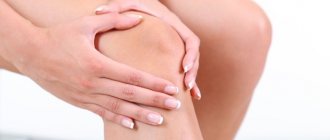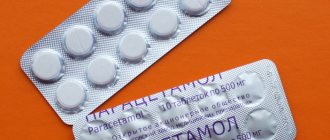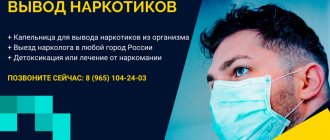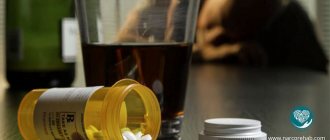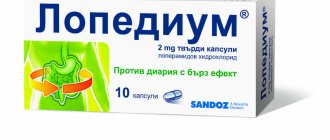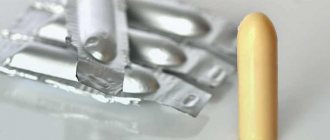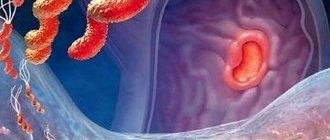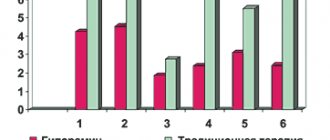Solpadeine is a branded drug manufactured by GlaxoSmithKline. It combines the properties of an analgesic with an antipyretic and is used to relieve pain and reduce fever. The medication contains a combination of two substances:
- paracetamol, which slows down the production of prostaglandins in the nervous system. The result is a decrease in pain and fever,
- caffeine is an energy tonic that is used to reduce drowsiness and fatigue, and enhance the analgesic effect of the drug and physical performance.
The medicine has two pharmacological effects:
- anesthetic,
- antipyretic.
Composition of Solpadeine
- 1 tablet of Solpadeine contains 30 mg of caffeine , 8 mg of codeine phosphate hemihydrate , 500 mg of paracetamol . Auxiliary components: potassium sorbate, starch, cellulose, povidone, stearic acid, talc, ethanol 95%, magnesium stearate, hydroxypropyl methylcellulose, water, carmazine.
- 1 soluble tablet of Solpadeine contains 30 mg of caffeine , 8 mg of codeine phosphate hemihydrate , 500 mg of paracetamol . Auxiliary components: sorbitol , sodium bicarbonate, polyvidone, sodium lauryl sulfate, sodium saccharin, citric acid, sodium carbonate, dimethicone.
- 1 capsule of Solpadeine contains 30 mg of caffeine , 8 mg of codeine phosphate hemihydrate , 500 mg of paracetamol . Auxiliary components: magnesium stearate, propylene glycol, starch, titanium dioxide, gelatin, IMS 74 OP, red dye iron oxide, shellac, gelatin, water, butanol, isopropanol, black dye iron oxide.
Composition of Solpadeina Fast
- 1 tablet of Solpadein Fast (Solpadein Active) contains 60 mg of caffeine and 500 mg of paracetamol . Auxiliary components: sodium bicarbonate, sodium saccharinate, sorbitol, sodium lauryl sulfate, povidone, citric acid, dimethicone, sodium carbonate.
Note!
The description of the drug Solpadeine on this page is a simplified author’s version of the apteka911 website, created on the basis of the instructions for use.
Before purchasing or using the drug, you should consult your doctor and read the manufacturer's original instructions (attached to each package of the drug). Information about the drug is provided for informational purposes only and should not be used as a guide to self-medication. Only a doctor can decide to prescribe the drug, as well as determine the dose and methods of its use.
Release form
White capsule-shaped tablets with red inscription "Solpadeine".
- 5 tablets in a blister - 1 or 2 blisters in a pack-cover made of plastic;
- 6 tablets in a blister - 1 or 2 blisters in a pack-cover made of plastic;
- 8 tablets in a blister - 1 blister in a pack-cover made of plastic or in a pack of paper;
- 12 tablets in a blister - 1 blister in a paper pack.
Soluble white flat tablets, scored on one side.
- 2 tablets per strip - 2, 4, 12, 6 or 30 strips in a paper pack.
Capsules with a red cap and a white body, with the black inscription “Solpadeine”, inside there is a white powder with crystalline inclusions.
- 6 capsules in a blister - 1 or 2 blisters in a pack of paper;
- 12 capsules in a blister - 1 blister in a pack of paper.
Soluble white tablets with beveled edges and a notch on one side.
- 2 tablets per strip - 2 or 6 strips in a paper pack;
- 4 tablets per strip - 6 strips per pack of paper.
Pharmacodynamics and pharmacokinetics
A drug of complex composition containing a combination of 3 active ingredients.
Paracetamol has an antipyretic and analgesic effect.
Caffeine demonstrates a general tonic effect (reduces drowsiness, weakens the feeling of fatigue, increases performance, increases heart rate, increases blood pressure during arterial hypotension ), stimulates the analgesic effect of Solpadeine.
Codeine has an analgesic effect and also improves pain tolerance.
Effective drugs to relieve unpleasant symptoms
Popular pharmaceutical remedies for reducing the signs of a hangover have different effects on the body - they reduce migraines, restore heart rate and blood pressure, and cleanse toxic compounds.
What pills help with a hangover:
- activated carbon;
- aspirin;
- No-Shpa;
- Coficil-plus;
- Askofen;
- Ketorol;
- Linux.
Most often, activated carbon from a home medicine cabinet is used to neutralize the effects of a feast. The number of tablets is calculated individually, based on body weight - one tablet is taken per ten kg.
Charcoal can be taken in combination with other medications, this significantly increases their effectiveness . If you feel unwell, you can take 7-9 tablets of activated carbon with an aspirin capsule and two No-Shpas. Coal removes toxic substances, No-Shpa improves the functioning of hepatocytes (liver cells), and aspirin normalizes blood pressure and relieves spasms.
Coficil-plus and Askofen are used to neutralize the symptoms of hangover. Medicines must be taken in the evening, before bedtime. If waking up in the morning after libations is accompanied by swelling, it is recommended to take a tablet of Furasemide or another diuretic pharmaceutical.
To eliminate the unpleasant odor of fumes and increase overall tone, liquid vitamin B6 is used, which is available in the form of ampoules. One ampoule should be diluted in water (2-4 tablespoons) and drunk in one sip.
This component has a detoxifying, immunomodulatory and tonic effect. Vitamin B6 stimulates the functioning of liver cells and metabolic processes, due to which the toxic components of ethyl alcohol are removed from the cavity of the gastrointestinal system much faster.
Effervescent remedies - Alka-Seltzer, Zorex, Aspirin - are good for relieving hangovers. They dissolve in a cup of water and begin to act immediately after consumption, without irritating the inflamed surface of the digestive organs. Effervescent tablets act faster than regular tablets, since carbon dioxide provides intense saturation of cells with oxygen molecules.
Contraindications
- organic diseases of the circulatory system, including heart attack and atherosclerosis ;
- anxiety and panic disorders;
- attacks of tachycardia , ventricular extrasystole ;
- asthma ; cardiopulmonary failure; disorders accompanied by increased sputum production;
- arterial hypertension;
- sleep disorders;
- decompensated liver or kidney failure ;
- traumatic brain injury;
- blood disorders ( neutropenia, anemia, agranulocytosis, thrombocytopenia, hypocoagulation );
- increased intracranial pressure;
- pregnancy and lactation;
- allergy to the components of the drug;
- age up to 12 years;
- alcohol poisoning;
- epilepsy.
Solpadeine tablets should be prescribed with caution for viral hepatitis , benign hyperbilirubinemia, alcoholism , increased excitability, alcoholic damage to liver tissue, glaucoma , deficiency of glucose-6-phosphate dehydrogenase , tendency to seizures, and in old age.
What pills are useless for hangover syndrome
In an effort to get rid of the symptoms of a severe morning condition as soon as possible, a person often takes those medications that are at hand and does not take into account their pharmacological effect.
- Paracetamol - puts an increased load on the liver, which is weakened by the breakdown and excretion of the components of ethyl alcohol.
- Citramon - often taken for headaches. A pharmaceutical based on paracetamol has a similar effect.
- Nurofen is intended to relieve spasms in inflammatory diseases and does not affect hangover symptoms.
Before you relieve a hangover with pills, you should definitely read the instructions for the medicine, otherwise you can only worsen your condition.
Side effects
In the doses indicated below, the drug is well tolerated, but in some cases angioedema , skin rash, bronchospasm, and urticaria .
Codeine can cause: nausea, constipation , dizziness, vomiting, drowsiness, gastralgia , sleep disturbances, tachycardia .
Paracetamol can cause: agranulocytosis, leukopenia, thrombocytopenia, hemolytic anemia, methemoglobinemia, liver and kidney dysfunction (with long-term use in high doses).
Caffeine can cause: anxiety, agitation, headache, tachycardia , increased blood pressure, arrhythmias .
Effective hangover pills based on natural ingredients
The question of which pills help with a hangover should be asked to a doctor, who will select the ideal drug taking into account the individual characteristics of the patient. Most medications to combat withdrawal symptoms are available over the counter. A list of hangover pills that contain herbal ingredients is listed below:
- Corrda. Made from grapes, it contains antioxidants that accelerate the elimination of toxic substances from the body. The drug has a beneficial effect on the liver, but it is not used as an emergency aid. Most often it is part of a comprehensive maintenance therapy regimen.
- Stand up. The main components of the drug are ginseng, St. John's wort, thyme. Tablets are not suitable for emergency use; they are recommended to be included in a maintenance treatment regimen. the drug improves metabolic processes, normalizes the activity of the digestive system, and has a sedative and hypnotic effect.
- Alco-Buffer. The active ingredient is milk thistle extract. The medicine has a positive effect on the condition of the liver and quickly removes toxic substances from the body.
- Drink OFF. The composition includes natural ingredients: ginger, eleutherococcus, licorice extract, citric and succinic acids. These effective hangover pills quickly combat the most unpleasant symptoms - headaches, dizziness, and bouts of nausea.
Instructions for use of Solpadeine (Method and dosage)
Solpadeine capsules and tablets, instructions for use
Persons over 16 years of age are recommended to take 1-2 tablets (effervescent tablets or capsules) up to four times a day, with an interval of at least four hours between doses. The largest permitted single dose is 2 tablets, the largest permitted daily dose is 8 tablets.
Children 12-16 years old are prescribed to take 1 tablet (effervescent tablet or capsule) up to 4 times a day with an interval of at least four hours between doses. The largest permitted single dose is 1 tablet, the largest permitted daily dose is 4 tablets.
The drug should be taken after meals. Soluble (or “effervescent”) Solpadeine must be diluted in a glass of water before taking.
You should not take the described drug for more than 5 days in a row when treating pain and more than 3 days in a row when treating fever.
Solpadeine Active (Solpadeine Fast), instructions for use
Solpadeine Fast effervescent tablets must be dissolved in a glass filled with water before taking.
Persons over 12 years of age are recommended to take 1-2 tablets up to four times a day, with an interval of at least four hours between doses. The largest permitted single dose is 2 tablets, the largest permitted daily dose is 8 tablets.
You should not take the described drug for more than 5 days in a row when treating pain and more than 3 days in a row when treating fever.
Solpadeine Fast pain reliever, tablets No. 12
A country
Ireland
Country of manufacture may vary depending on the batch of goods. Please check with the operator for detailed information when confirming your order.
Active substance
Caffeine + Paracetamol + Propyphenazone
Description
Solpadeine Fast in soluble form has an analgesic effect for migraines, headaches, toothaches and periodic pain.* Solpadeine Fast is a targeted effect against pain!
* Instructions for medical use, RU No. P N 014417/01 dated November 18, 2008
Compound
Composition per 1 tablet: Component Contents in 1 tablet Active ingredients: Paracetamol 500.00 mg Caffeine 65.00 mg Excipients: Pregelatinized starch 50.00 mg Corn starch 41.40 mg Povidone (K 22.5 – 27.0) 2 .00 mg Potassium sorbate 0.60 mg Talc 15.00 mg Stearic acid 5.00 mg Croscarmellose sodium 10.00 mg Film coating: Hypromellose 5.00 mg Triacetin 1.00 mg
Product description
White, film-coated, capsule-shaped tablets with a flat edge. On one side of the tablet there is an embossed sign in the form of a triangle and a “+”.
pharmachologic effect
Paracetamol Paracetamol blocks cyclooxygenase (COX) in the cells of the central nervous system, affecting the centers of pain and thermoregulation (in inflamed tissues, cellular peroxidases neutralize the effect of paracetamol on COX), which explains the almost complete absence of anti-inflammatory effect. The lack of influence on the synthesis of prostaglandins in peripheral tissues determines the absence of a negative effect on water-salt metabolism (sodium and water retention) and the mucous membrane of the gastrointestinal tract. Caffeine Stimulates the psychomotor centers of the brain, has an analeptic effect, enhances the effect of analgesics, eliminates drowsiness and fatigue, increases physical and mental performance. Paracetamol is quickly and almost completely absorbed from the gastrointestinal tract. Distribution in body fluids is relatively uniform. At therapeutic concentrations, the binding of paracetamol to plasma proteins is minimal. Caffeine is completely and quickly absorbed from the gastrointestinal tract and distributed throughout the body Metabolism Paracetamol is metabolized in the liver and excreted by the kidneys in the form of glucuronide and sulfate metabolites - less than 5% is excreted as unchanged paracetamol. Caffeine is almost completely metabolized in the liver through oxidation and demethylation into metabolites that are excreted by the kidneys. Elimination The average half-life of paracetamol when taking a therapeutic dose is about 2 - 3 hours. The average half-life of caffeine when taking a therapeutic dose is about 4 - 9 hours.
Indications for use
The drug Solpadein Fast is used in adults and children over 12 years of age as: - an anesthetic (for pain of mild to moderate intensity) for: - toothache, including during tooth extraction and after dental interventions; - headaches and migraines; - sore throat; - pain in muscles and joints; - pain caused by osteoarthritis; - pain in the lower back; - neuralgia; - painful menstruation (dysmenorrhea). - as a symptomatic treatment to reduce elevated body temperature in: - acute respiratory and acute respiratory viral diseases, including influenza; - after vaccination.
Contraindications
- Hypersensitivity to paracetamol, caffeine or any other component of the drug; — Severe liver and kidney dysfunction; - Arterial hypertension; — Glaucoma, sleep disorders; — Children under 12 years of age; — Pregnancy and lactation; — Epilepsy; - Simultaneous use with other drugs containing paracetamol.
Carefully
- Benign hyperbilirubinemia (including Gilbert's syndrome). — Viral hepatitis. - Alcoholic liver disease. — Chronic alcoholism. — Glucose-6-phosphate dehydrogenase deficiency. — Liver and kidney dysfunction of mild to moderate severity. If you have any of the listed diseases/conditions/risk factors, you should consult your doctor before taking the drug.
Use during pregnancy and lactation
Pregnancy: Studies in animals and humans have not identified any risk of using paracetamol during pregnancy or negative effects on intrauterine development of the fetus, however, the use of caffeine may increase the risk of spontaneous abortion or the birth of a low birth weight baby, therefore Solpadeine Fast is not recommended for use during pregnancy. Breastfeeding period Paracetamol penetrates the placental barrier and into breast milk. Human studies have not shown any negative effects on the baby's body during breastfeeding. Caffeine passes into breast milk and can have a stimulating effect on a breastfed baby, so Solpadeine Fast is not recommended for use during lactation.
Directions for use and doses
For oral administration. Do not exceed the indicated dose! The smallest dose necessary to achieve the effect should be used! The minimum interval between doses of Solpadeine Fast should be 4 hours. Adults (including the elderly) and children over 12 years of age: 1-2 tablets up to 4 times a day, as needed. The interval between doses should be at least 4 hours. The maximum single dose is 2 tablets, the maximum daily dose is 8 tablets. The drug is not recommended for use for more than 5 days as an analgesic and for more than 3 days as an antipyretic without a doctor’s prescription and supervision. Increasing the duration of taking the drug is possible only under the supervision of a doctor. If you exceed the recommended dose of the drug, seek medical help immediately, even if you feel well. An overdose of paracetamol can cause liver failure. Special groups of patients Patients with impaired renal function: Before using the drug Solpadeine Fast, patients with impaired renal function should first consult a doctor. Restrictions associated with the use of drugs containing a combination of caffeine and paracetamol in patients with impaired renal function are mainly associated with the paracetamol content of the drug. Patients with impaired liver function: Before using the drug Solpadein Fast, patients with impaired liver function should first consult a doctor. Restrictions associated with the use of drugs containing a combination of caffeine and paracetamol in patients with impaired liver function are mainly related to the paracetamol content of the drug
Side effect
At recommended doses, the drug is usually well tolerated. The following adverse reactions were detected spontaneously during post-registration use of the drug. Adverse reactions are classified according to body systems and according to the frequency of development. The frequency of adverse reactions is determined as follows: very often (≥ 1/10), often (≥ 1/100 and Paracetamol Disorders of the blood and lymphatic system: Very rare: thrombocytopenia, leukopenia, pancytopenia, methemoglobinemia, agranulocytosis, hemolytic anemia. Disorders from the immune system: Very rare: anaphylaxis, skin hypersensitivity reactions, including skin rash, itching, urticaria, angioedema (Angioedema), Stevens-Johnson syndrome.Respiratory, thoracic and mediastinal disorders: Very rare: bronchospasm in patients with hypersensitivity to acetylsalicylic acid and intolerance to other non-steroidal anti-inflammatory drugs. Disorders of the liver and biliary tract: Very rarely: liver dysfunction. With long-term use of the drug in high doses, the likelihood of hepatotoxicity, nephrotoxicity and pancytopenia increases. In case of prolonged use When using the drug, monitoring of the blood picture is necessary. Caffeine Nervous system disorders: Frequency unknown: increased excitability, sleep disturbance, insomnia, dizziness, headaches. Vascular disorders: Frequency unknown: tachycardia. Gastrointestinal disorders: Frequency unknown: dyspeptic disorders (including nausea, epigastric pain). When using the drug Solpadein Fast, it is not recommended to take caffeine-containing products, because this increases the risk of undesirable effects such as insomnia, irritability, anxiety, headache, gastrointestinal disorders, tachycardia, cardiac arrhythmia. If any of the listed adverse reactions occur, stop taking the drug and consult a doctor immediately
Overdose
Symptoms (due to paracetamol) An overdose of paracetamol may cause liver failure, which may lead to the need for a liver transplant or death. The hepatotoxic effect in adults occurs when taking paracetamol in amounts of 10 g or more. If there are factors that influence the toxicity of paracetamol to the liver (see sections “Interaction with other drugs”, “Special instructions”), liver damage may occur after taking paracetamol in an amount of 5 g or more. With long-term use of the drug in excess of the recommended dose, the drug may have a nephrotoxic effect (renal colic, nonspecific bacteriuria, interstitial nephritis, papillary necrosis). During the first 24 hours after an overdose, the following symptoms may appear: nausea, vomiting, stomach pain, pale skin, anorexia, metabolic acidosis. After 1-2 days, signs of liver damage are determined (pain in the liver area, increased activity of “liver” enzymes), and possible development of carbohydrate metabolism disorders and metabolic acidosis. In severe cases of overdose, encephalopathy (impaired brain function), bleeding, hypoglycemia, cerebral edema, even death, the need for liver transplantation, and death may develop as a result of liver failure. It is also possible to develop acute renal failure with acute tubular necrosis, the characteristic signs of which are pain in the lumbar region, hematuria (admixture of blood or red blood cells in the urine), proteinuria (increased protein in the urine), while severe liver damage may be absent. There have been cases of heart rhythm disturbances and pancreatitis. Treatment If an overdose of Solpadeine Fast is suspected, even in the absence of pronounced first symptoms, it is necessary to stop using the drug and immediately consult a doctor for medical assistance. During the first hour after an overdose, but no later than 4 hours, it is recommended to lavage the stomach and take enterosorbents (activated carbon, polyphepane). The concentration of paracetamol in the blood plasma should be determined, but not earlier than 4 hours after the overdose (earlier results are unreliable). Administration of acetylcysteine within 24 hours after an overdose. The maximum protective effect is ensured during the first 8 hours after an overdose; over time, the effectiveness of the antidote drops sharply. If necessary, acetylcysteine is administered intravenously. In the absence of vomiting, methionine can be used before the patient is admitted to the hospital. The need for additional therapeutic measures (methionine intake, intravenous acetylcysteine) is determined depending on the concentration of paracetamol in the blood plasma, as well as the time elapsed after its administration. Treatment of patients with severe liver dysfunction 24 hours after taking paracetamol should be carried out in conjunction with specialists from a poison control center or specialized liver disease department. Symptoms (caused by caffeine) Epigastric pain, vomiting, frequent urination, tachycardia, arrhythmia, stimulation of the central nervous system (insomnia, restlessness, agitation, anxiety, increased neuro-reflex excitability, tremor and convulsions). It should be borne in mind that the appearance of clinically significant symptoms of caffeine overdose when taking the drug is always associated with severe liver damage due to an overdose of paracetamol. Treatment There is no specific antidote. Treatment includes supportive measures, such as drinking plenty of fluids and maintaining vital signs. Within 1 hour to 4 hours after an overdose, it is recommended to take activated carbon. To reduce the effects of caffeine on CNS function, intravenous sedatives and beta-adrenergic antagonists are recommended to reduce the cardiotoxic effect.
Interaction with other drugs
If the patient is already taking other medications, you should consult a doctor before starting to take Solpadeine Fast. When taken regularly over a long period of time, the drug enhances the effect of indirect anticoagulants (warfarin and other coumarins), which increases the risk of bleeding. Occasional administration of a single dose of the drug does not have a significant effect on the effect of indirect anticoagulants. Enhances the effect of MAO inhibitors. Barbiturates, carbamazepine, phenytoin, diphenin, primidone and other anticonvulsants, ethanol, rifampicin, zidovudine, flumecinol, phenylbutazone, butadione, preparations of St. John's wort and other inducers of microsomal oxidation increase the production of hydroxylated active metabolites, causing the possibility of developing severe liver damage with small overdoses of paracetamol (5 g or more). Inhibitors of microsomal liver enzymes (cimetidine) reduce the risk of hepatotoxicity. Under the influence of paracetamol, the elimination time of chloramphenicol (chloramphenicol) increases by 5 times, as a result of which the risk of chloramphenicol (chloramphenicol) poisoning increases. Metoclopramide and domperidone increase, and cholestyramine reduces the rate of absorption of paracetamol. The drug may reduce the effectiveness of uricosuric drugs. Long-term combined use of paracetamol and other NSAIDs increases the risk of developing “analgesic” nephropathy and renal papillary necrosis, and the onset of end-stage renal failure. Simultaneous long-term administration of paracetamol in high doses and salicylates increases the risk of developing kidney or bladder cancer. Concomitant administration of flucloxacillin with paracetamol may lead to metabolic acidosis, especially in patients with risk factors for glutathione depletion such as sepsis, malnutrition or chronic alcoholism. The simultaneous use of paracetamol and alcoholic beverages increases the risk of developing liver damage and acute pancreatitis. Caffeine accelerates the absorption of ergotamine. The drug should not be taken simultaneously with caffeine-containing products.
special instructions
There are no data on the effect of the drug on fertility. If no improvement is observed while taking the drug or the headache becomes constant, you should consult a doctor. The drug Solpadein Fast should not be used with other paracetamol-containing drugs, since taking the drugs together can cause an overdose of paracetamol. An overdose of paracetamol may cause liver failure, which may lead to the need for liver transplantation or death. The drug Solpadeine Fast should not be taken with caffeine-containing foods (tea, coffee, etc.), because this can lead to restlessness, anxiety, irritability, insomnia, headache, gastrointestinal disorders, tachycardia, cardiac arrhythmia. Patients with glutathione deficiency due to an eating disorder, cystic fibrosis, HIV infection, starvation, malnutrition are susceptible to overdose, so precautions must be taken and it is recommended to consult a doctor before taking the drug. Cases of liver failure/impaired liver function have been reported with a small overdose of paracetamol (5 g or more) in patients with low glutathione levels, in particular in extremely malnourished patients suffering from anorexia, chronic alcoholism or patients with a low body mass index. The use of Solpadeine Fast by patients with low glutathione levels, for example, with sepsis, may increase the risk of developing metabolic acidosis, accompanied by symptoms of rapid, difficult breathing (feeling of shortness of breath, shortness of breath), nausea, vomiting, loss of appetite. If these symptoms occur simultaneously, you should immediately consult a doctor. TO AVOID TOXIC DAMAGE TO THE LIVER, PARACETAMOL SHOULD NOT BE COMBINED WITH ALCOHOL BEVERAGES, AND SHOULD NOT BE TAKEN BY PERSONS PROMOTED TO CHRONIC ALCOHOL CONSUMPTION. Concomitant liver diseases increase the risk of further liver damage when taking Solpadeine Fast. When taking the drug in patients with non-alcoholic cirrhosis of the liver there is a high risk of overdose. Patients suffering from atopic bronchial asthma and hay fever have an increased risk of developing allergic reactions. When conducting tests to determine uric acid and blood glucose levels, you should inform your doctor about taking the drug. The drug can change the results of doping control tests for athletes
Release form
Film-coated tablets. 12 tablets per PVC/aluminum blister. 1 blister along with instructions for use is placed in a cardboard box.
Storage conditions
Store at a temperature not exceeding 25 C. Keep out of the reach of children.
Best before date
4 years. Do not use after the expiration date stated on the package.
Overdose
In case of overdose (even if you feel well), you should immediately consult a doctor.
Signs of overdose: stomach pain, vomiting, nausea, pale skin, anorexia. After 2 days, symptoms of deterioration in liver function are revealed. hepatic coma is possible .
Treatment of overdose: use of enterosorbents , gastric lavage, symptomatic therapy.
Prescription of medication
The medication is used to relieve symptoms:
- headache, dental, menstrual and muscle pain,
- migraine attacks,
- rheumatic diseases and neuralgia,
- pain due to inflammation of the throat and joints,
- pain that occurs after treatment and tooth extraction operations,
- fever after administering vaccines to a patient,
- elevated temperature due to colds and flu.
Solpadeine effervescent is dissolved in 0.5 cups of water cooled to room temperature. Solpadeine for toothache in fifteen minutes reduces the patient’s suffering during the day and before falling asleep and helps before visiting the dentist. Solpadeine for headaches is used at the onset of migraine attacks and changes in weather conditions. The medicine eliminates nausea, frontal and temporal pain in 10-20 minutes. Solpadeine for fever is used to reduce fever and intoxication during epidemics of colds and after vaccinations. Solpadeine at a temperature makes the patient feel better in 10-15 minutes and is prescribed for sinusitis and sore throat.
Interaction
Barbiturates, Salicylamide , Rifampicin , antiepileptic drugs and other activators of microsomal oxidation accelerate the production of toxic paracetamol , which negatively affect liver function.
The half-life of Chloramphenicol under the influence of paracetamol is extended by approximately 5 times.
Metoclopramide accelerates the adsorption of paracetamol .
With repeated use, paracetamol can enhance the effects of indirect anticoagulants , which increases the risk of bleeding.
Caffeine accelerates the absorption of Ergotamine .
Blockers of microsomal oxidation reduce the risk of hepatotoxic effects of the drug.
Taking nervous system depressants (including alcohol) with codeine may enhance their effects.
Consequences of combining medication with alcohol
Even light beer should not be drunk after taking pills. In addition to Paracetamol, the medicine contains codeine and caffeine.
The latter has the property:
- increase heart rate;
- act stimulatingly;
- constrict blood vessels in the brain.
It is difficult to predict what the combination of drinking and medication will lead to. Among the likely consequences are tachycardia (accelerated heart rate) and changes in blood pressure (blood pressure). Serious problems with the cardiovascular system are possible.
Doctors recommend avoiding this combination. If a person has taken alcohol with painkillers and his condition worsens, you should not self-medicate. It is better to call doctors immediately.
special instructions
It is recommended to take Solpadeine with caution in case of liver or kidney diseases, intestinal disorders, after cholecystectomy , when taking antiemetics, drugs that cause drowsiness, indirect anticoagulants, monoamine oxidase inhibitors, ethanol together.
Solpadeine should not be used together with other drugs including paracetamol or codeine .
With prolonged use in dosages significantly higher than those indicated, periodic monitoring of the blood condition is necessary.
During treatment with the drug, excessive intake of coffee and tea is not recommended, because this can lead to tachycardia , sleep disturbance, agitation and even arrhythmia .
The patient should be warned that if side effects from digestion, allergic reactions , skin rashes, ulceration on the oral mucosa, bleeding and bruises , it is necessary to stop taking Solpadeine and immediately consult a doctor.
With long-term uncontrolled use of the described drug in large dosages, addiction (decreased analgesic effect) and dependence may occur.
During drug therapy, it is recommended to be careful when driving.
Features of application
Pregnant
It is not recommended for use during pregnancy, as the risk of spontaneous miscarriage associated with caffeine use increases.
Paracetamol and caffeine pass into breast milk. It is not recommended to use the drug during breastfeeding. Caffeine may have stimulant effects in breastfeeding infants, but no significant toxicity has been observed.
Children
Not recommended for use by children under 12 years of age.
Drivers
If dizziness occurs during treatment, you should refrain from driving vehicles or operating other machinery.
Analogs
Level 4 ATC code matches:
Phenacetin
Combiflu
Chlorphenamine
Coldflu
Calpol
Fervex
Panadol Extra
Panadol for children
Panadol
Efferalgan
Milistan
Coldrex Maxgripp
Coldrex Hotrem
Coldrex
AntiGrippin
Unispaz
Pentalgin Plus
Rapidol
Maxicold
Perfalgan
Kaffetin , Aurora Hot Sip , Adzhicold, Gripout , Pentalgin , Ibuprofen , Mig 400 .
Price, where to buy
The price of Solpadeine in capsules No. 12 in Russia is on average 150 rubles, and in Ukraine it can reach 39 hryvnia.
The price of Solpadein Fast No. 12 in Russia is 130-150 rubles, in Ukraine – 30-41 hryvnia.
- Online pharmacies in RussiaRussia
- Online pharmacies in UkraineUkraine
- Online pharmacies in KazakhstanKazakhstan
ZdravCity
- Solpadeine Fast tab.
12 pcs GlaxoSmithKline Dargavan LTD 162 RUR order - Solpadeine fast tab. rast. n12Famar S.A. GR
280 rub. order
- Solpadeine Fast tab. sol. 65mg+0.5g 24pcsGlaxoSmithKline Dungarvan Limited
RUB 462 order
Pharmacy Dialogue
- Solpadeine Fast pain reliever, tablets No. 12GlaxoSmithKline
134 RUR order
- Solpadeine Fast pain reliever, soluble tablets No. 12GlaxoSmithKline
RUB 261 order
- Solpadeine Fast pain reliever, soluble tablets No. 24GlaxoSmithKline Dungarvan
RUR 429 order
- Solpadeine Fast pain reliever, soluble tablets No. 12GlaxoSmithKline Dungarvan
RUB 254 order
- Solpadeine Fast pain reliever, tablets No. 24GlaxoSmithKline
406 rub. order
show more
Pharmacy24
- Solpadeine Active N12 tablets GlaxoSmithKline Dungarvan Limited, Ireland
52 UAH.order - Solpadeine Active No. 12 effervescent tablets GlaxoSmithKline Dungarvan Limited, Ireland/Famar A.V.E. Antosa plant, Greece
61 UAH order
PaniPharmacy
- Solpadeine active tablets Solpadeine Active soluble tablets No. 12 Ireland, GlaxoSmithKline Dangarvan
62 UAH.order
- Solpadeine capsule Solpadeine capsules No. 12 Spain, SKB
51 UAH order
- Solpadeine active tablets Solpadeine Active tablets No. 12 Ireland, GlaxoSmithKline Dangarvan
55 UAH order
- Solpadeine tablets Solpadeine tablets. No. 12 Ireland, GlaxoSmithKline Dangarvan
38 UAH order
show more
